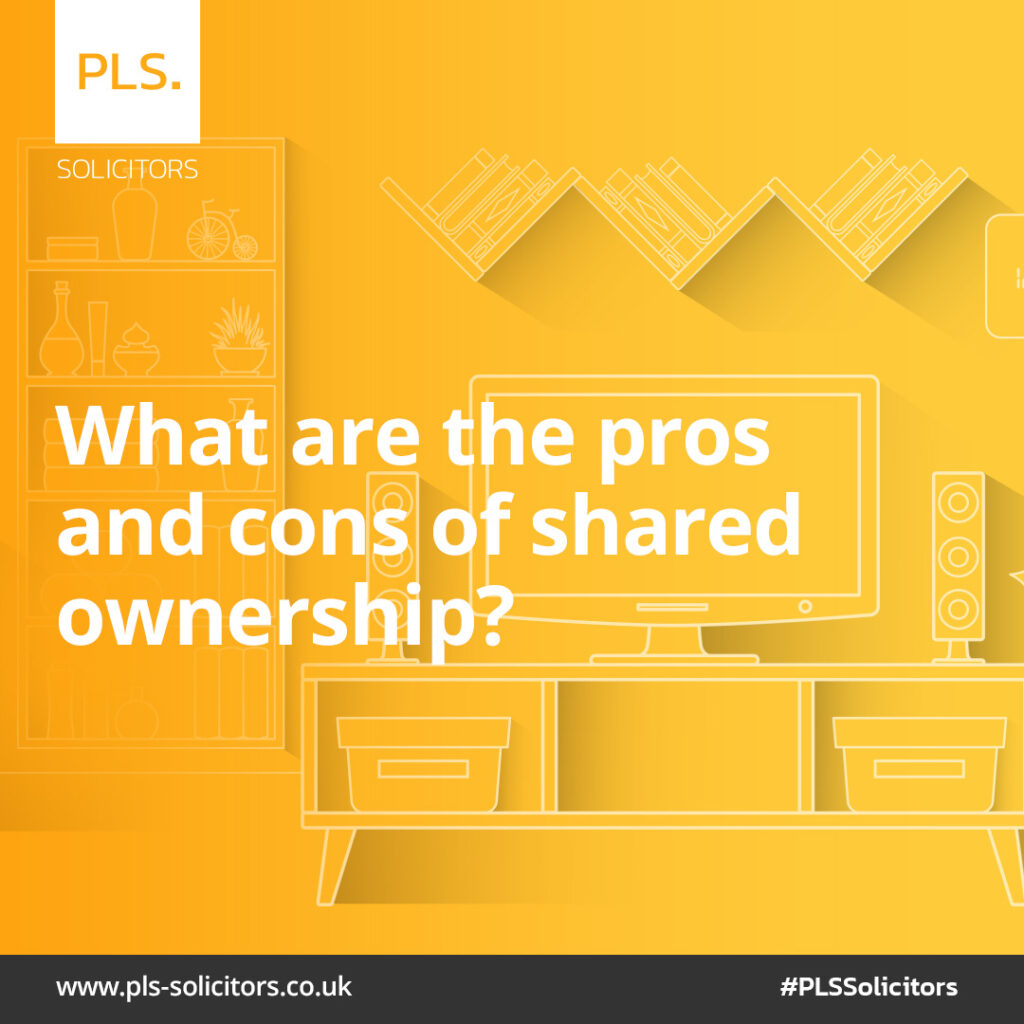What are the pros and cons of shared ownership?
Keen to get on the property ladder but worried you can’t afford it? Shared Ownership might just be the solution for you.
PLS Solicitors works with housing associations across the country, helping first-time buyers achieve their property dreams through schemes like Shared Ownership.
What is shared ownership?
Shared Ownership is a middle ground between renting and buying a property outright, enabling you to purchase a portion of a home (between 25-75%) while paying rent on the remainder.
You can purchase your share either by taking out a mortgage or paying with your savings. You’ll typically need to pay a 5% deposit on your share value.
Because you only purchase part of a property, your deposit will be much lower than buying outright, making shared ownership a very affordable, accessible alternative.

The pros and cons of shared ownership
Investing in a property is a big life decision. Before proceeding, you’ll want to ensure you’ve weighed the pros and cons. We’ve collated some key facts for you below.
PROS
- A more affordable deposit: You’ll need a much smaller deposit to participate in this scheme. Plus, your mortgage will be smaller, meaning cheaper repayments.
- Long-term stability: You become an owner-occupier rather than a tenant, so you won’t have to worry about moving out based on your landlord’s decisions.
- Higher mortgage approval rate: your mortgage request is more likely to get approved as smaller mortgages are inherently lower risk to lenders.
- Increase your shares: Over time, you can increase your shares and gradually buy the property outright if you wish – although you don’t have to do this.
CONS
- You’ll need permission to renovate the property: Because numerous individuals own the property, you’ll need to gain their approval before implementing any aesthetic changes.
- Fewer mortgage products: Shared Ownership is a concept that has taken on different forms and goes back as far as the 1980s. As it is a specialist product there are fewer mortgage providers than traditional mortgages.
If you want to learn more visit the (Gov website). For legal advice, you can contact our specialist conveyancing team for a free, no-obligation chat.